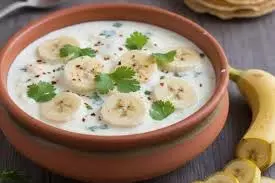Nutritionist shares diet plan for healthy ageing: Focus on quality protein, hydration and anti-inflammatory foods

Nutritionist shares diet plan for healthy ageing: As the body ages, it exhibits visible signs, such as wrinkles and grey hair. However, ageing actually starts inside bodies long before these signs appear.
Over time, the ageing process speeds up. Lifestyle choices, particularly diet, can impact the rate at which one ages and slow down ageing through activities that focus on health. A nutritious diet can lower oxidative stress and cell damage, both of which contribute to ageing. Following an anti-ageing nutrition plan can help your body age in a healthier way.
“What if I told you that you can find the secret to staying youthful in your kitchen? It’s true! The foods we eat greatly affect how we age and our overall health and lifespan. I have dedicated my life to nutrition, and there is a nutrition plan that focuses on preventing ageing that can help you stay healthy as you get older,” Dr Rohini Patil, Nutritionist, tells Health Shots.
How does lifestyle impact ageing?
Ageing is a natural part of life, but choices can either accelerate or slow down this process. Chronic inflammation and oxidative stress play important roles in the ageing process, leading to cell damage and various health issues. Following a customised nutrition plan can reduce these effects. “My anti-ageing strategies focus on reducing inflammation, promoting cell repair, and enhancing overall health through informed food choices,” says the nutritionist.
1. Anti-inflammatory diet
Nutritionist shares diet plan for healthy ageing: The key to any good anti-ageing plan is an anti-inflammatory diet. This diet emphasises whole, plant-based foods rich in nutrients. “Vegetables, fruits, legumes, whole grains, and healthy oils contain many compounds that fight inflammation and protect against damage from free radicals,” says the expert. These foods help reduce oxidative stress and chronic inflammation, both of which are important factors in the ageing process.
Suggestions for your plate:
- Colourful veggies and fruits: Opt for a variety of vibrant, nutrient-dense vegetables and fruits over fried foods. Think bell peppers, berries, spinach, and sweet potatoes.
- Nutrient highlights: Incorporate foods high in vitamin C, polyphenols, and other antioxidants. Foods like oranges, blueberries, and green tea work wonders for skin health and cellular protection.
2. High-quality protein intake
As we age, it’s important to maintain strong muscles and a healthy immune system. Protein helps repair muscles and supports cell health. “Including good sources of protein in every meal can benefit health,” shares the doctor. Eating protein helps build muscle and repair tissue that may become weaker over time.
Protein-packed choices:
- Diverse sources: Include a variety of foods, such as fish, eggs, legumes, and low-fat dairy, in your diet.
- A balanced diet focuses on protein, which also aids in hormone production and stabilises blood sugar, contributing to a more balanced metabolism.
3. Calorie moderation and mindful eating
Many people are surprised to learn about the numerous benefits of intermittent fasting for their lifestyle. This practice helps the body heal and encourages mindful eating. “Instead of snacking without thinking, it teaches you to distinguish between emotional cravings and genuine hunger,” says Dr Patil. Fasting is not just about eating less, it’s about eating smart.
Fasting guidelines:
- Create a time window: Consider wrapping up dinner by 8 PM and enjoying breakfast around 8 AM. This 12-hour fasting window allows your body to rejuvenate itself.
- Avoid distractions: When you sit down to eat, eliminate distractions like the television or your phone. Focusing on your food helps you recognise when you’re full, preventing overeating.
4. Avoid smoking and excessive drinking
Smoking and drinking too much alcohol can harm your heart and your skin. These habits can accelerate skin ageing, leading to wrinkles and a dull appearance.
Steps toward healthier choices:
- If you find yourself struggling to quit smoking or reduce alcohol intake, seek advice from a healthcare provider who can guide you through the process.
- Choosing not to start these habits is the best preventive step.
5. Stay hydrated and balance key minerals
Nutritionist shares diet plan for healthy ageing: Staying hydrated is important for your health, even when life gets busy. Drinking enough water helps keep your skin looking good and supports strong joints.
Hydration tips:
- Always carry water: Keep a water bottle handy during errands or outdoor activities to maintain hydration.
- Regular sips over gulping: Aim for smaller amounts of water throughout the day rather than waiting until you’re extremely thirsty.
- Eat hydrating foods: Incorporate fruits and vegetables with high water content, such as cucumbers and watermelon, which help maintain electrolyte balance.
Eating a healthy diet can lower inflammation, build stronger muscles, and improve your overall health. “Foods rich in vitamin C and polyphenols help support gut health and boost cell function,” explains Dr Patil. Consider making these dietary changes to enhance both your health and energy.









